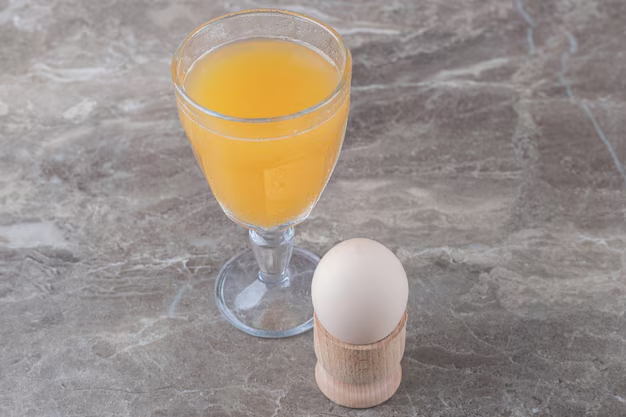How Long Can You Keep Boiled Eggs in the Refrigerator Unpeeled?
When it comes to food storage and shelf life, one of the most common questions is, "How long can boiled eggs last in the refrigerator unpeeled?" If you're a fan of boiled eggs, whether for a nutrient-rich snack, a salad topping, or a sandwich staple, understanding how to store them properly is crucial to maintaining freshness and taste.
🥚 Why Boiled Eggs?
Boiled eggs are a nutritional powerhouse, offering a protein-rich, low-calorie option that keeps you full and satisfied. They are versatile, easy to prepare, and perfect for busy lifestyles. However, ensuring that they remain safe to eat and tasty involves mastering a few simple storage techniques.
The Shelf Life of Boiled Eggs
H2: The Basics: How Long Do Boiled Eggs Last?
Boiled eggs, when stored properly, can last about a week in the refrigerator. The key factors affecting this timeframe include temperature, humidity, and how quickly they were cooled after boiling.
- Temperature: The refrigerator should be set to a temperature below 40°F (about 4°C) to slow bacterial growth.
- Cooling: Quickly plunge eggs into ice water after boiling. This not only stops the cooking process but also makes peeling easier if you choose to peel them.
H2: Factors Affecting Longevity
Several factors can influence how long your boiled eggs will last unpeeled in the fridge:
H3: Egg Freshness Before Boiling
Using fresh eggs can help extend their lifespan. The fresher the egg before boiling, the longer it is likely to last afterward.
H3: Storage Method
Proper storage is crucial. Unpeeled boiled eggs should be stored in a covered container or sealed plastic bag to minimize moisture loss and odor absorption.
H3: Intact Shells
A whole, intact shell acts as a natural barrier against bacteria, helping to preserve the egg longer.
H2: Signs Your Boiled Eggs Have Gone Bad
Knowing when boiled eggs are no longer safe to eat is crucial for your health. Here are some signs:
- Off Smell: A sulfur-like or otherwise unpleasant odor is a red flag.
- Discoloration: Look for changes in color, like a grayish or greenish tint in the yolk.
- Texture Changes: If the egg white feels slimy or the yolk is chalky, it's time to discard it.
📝 Pro Tip: A Freshness Test
Perform a quick water test if you're unsure about an egg's freshness. Place the egg in a bowl of water. If it sinks and lies flat, it's still good. If it stands on its end or floats, it's best not to consume it.
Safe and Effective Storage Practices
H2: Storing Boiled Eggs
Below are some general practices for storing boiled eggs to maximize their freshness:
H3: Use an Egg Carton
Repurpose the original egg carton to store your boiled eggs. This minimizes movement within the fridge, protecting the shells from cracks.
H3: Proper Refrigeration
Place the eggs in the coldest part of the fridge rather than the door, which can experience temperature fluctuations.
H3: Label with Dates
Whenever you boil a batch of eggs, clearly label them with the boiling date to keep track of their shelf life.
The Versatility of Boiled Eggs
H2: Delicious Ways to Use Boiled Eggs
Not only are boiled eggs a convenient snack, but they are also incredibly versatile in various dishes:
- Salads: Enhance your salads with sliced or chopped eggs for added protein.
- Sandwiches: Mash a boiled egg with a bit of mayonnaise and seasoning for a classic egg salad or sandwich filling.
- Breakfast: Pair boiled eggs with toast and avocado for a nutritious morning routine.
- Deviled Eggs: A party favorite—deviled eggs are simple to make and a hit at gatherings.
🍽️ Culinary Tips for a Perfect Boil
For a perfect boiled egg, follow these simple steps:
- Start in Cold Water: Place eggs in a pot and cover with cold water. This helps prevent cracking.
- Boil and Stand: Once the water reaches a rolling boil, cover the pot and remove it from heat. Let it stand for 9–12 minutes depending on preference.
- Cool Rapidly: Immediately transfer eggs to an ice bath to cool, halting the cooking process and easing peeling.
FAQ: Common Concerns About Boiled Egg Storage
H2: Can I Freeze Boiled Eggs?
While fresh, whole eggs can be frozen, boiled eggs don't freeze well. The texture of the egg whites becomes rubbery, and the yolks may become crumbly when thawed.
H2: Can I Peel Boiled Eggs Before Storing?
Peeling before storage can compromise shelf life. If you choose this route, ensure they are kept in an airtight container to prevent drying out.
Summary: Key Takeaways 🥡
Here's a quick-glance guide to keep your boiled eggs fresh and safe to enjoy:
- Shelf Life: Up to a week in the refrigerator when unpeeled and stored properly.
- Storage Conditions: Keep in a covered container at a temperature under 40°F (4°C).
- Signs of Spoilage: Discard if you notice off smells or discoloration.
- Freshness Test: Use the water test for a quick check.
- Labeling: Date your eggs to track how long they've been in the fridge.
Incorporating these tips into your routine will ensure that your boiled eggs remain a wholesome and delicious part of your diet. Whether as a quick snack or a complementary dish, understanding these storage principles can help you make the most of your boiled eggs.

